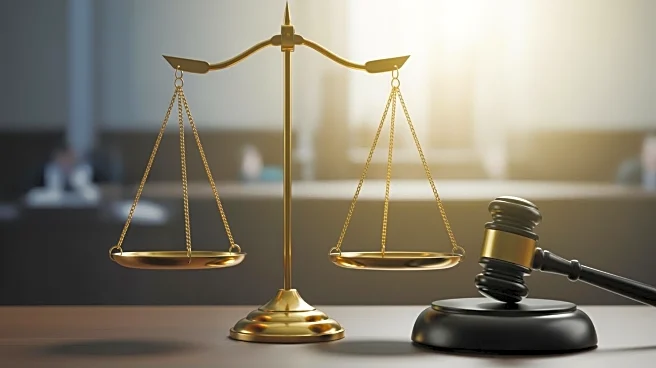What's Happening?
A provision in the Senate's recently passed funding bill allows senators to sue the federal government if their phone records were accessed without notification. This provision is part of a bipartisan deal aimed at reopening the government. It specifically
benefits eight Republican senators whose phone records were accessed during the investigation into the January 6, 2021, Capitol attack. The bill's language applies retroactively to data requests made after January 1, 2022, which includes the September 2023 request for these senators' data. The provision mandates notification to senators if their data is disclosed, with potential damages of $500,000 or actual damages for each violation. The provision does not apply if the senator is the target of a criminal investigation or if a court orders notification delay.
Why It's Important?
The provision highlights ongoing tensions between Republican lawmakers and federal investigative bodies, particularly concerning the investigation into the January 6 Capitol attack. It underscores concerns about privacy and government overreach, with potential financial implications for the government if lawsuits are successful. The move could set a precedent for how lawmakers' data is handled in investigations, potentially affecting future probes and the balance between privacy rights and investigative needs. The provision's focus on senators, excluding other officials, raises questions about equitable treatment under the law.
What's Next?
The House is expected to approve the bill soon, which could lead to legal actions by the affected senators seeking damages. The provision may prompt discussions on privacy rights and government surveillance, potentially influencing future legislative measures. Stakeholders, including civil rights groups and legal experts, may weigh in on the implications of this provision, possibly leading to broader debates on privacy and government accountability.

















